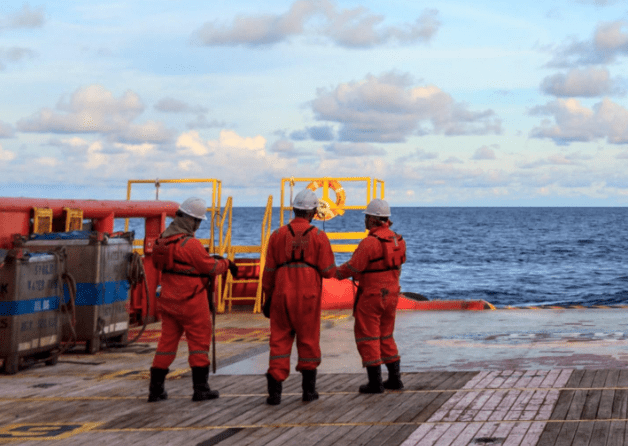13 countries have committed to facilitating crew changes and achieving key worker designation for seafarers, following a virtual ministerial summit hosted by the UK government on Thursday.
This step is said to represent a significant progress to help resolve a growing crisis facing the maritime industry, and enable hundreds of thousands of stranded seafarers to go home or join ships.
In a joint statement, representatives from Denmark, France, Germany, Greece, Indonesia, the Netherlands, Norway, Philippines, Saudi Arabia, Singapore, the United Arab Emirates (UAE), the United Kingdom and the United States expressed their deep concern about the current crisis and acknowledged that “the inability of ship operators worldwide to conduct ship’s crew changes is the single most pressing maritime operational challenge to the safe and efficient movement of global trade”.
Since the beginning of the COVID-19 pandemic, travel restrictions and border closures imposed by governments around the world have caused significant hurdles to crew changes and left hundreds of thousands of seafarers stranded onboard ships, or unable to join ships. It is currently estimated that at least 200,000 seafarers worldwide are stranded on ships and require immediate repatriation, and a similar number urgently need to join ships to replace them.
This has led to a growing humanitarian crisis, in addition to concerns that seafarer fatigue and mental health issues may lead to serious maritime accidents. There are also concerns about the continuity of the global supply chain.
Kitack Lim, Secretary-General of the International Maritime Organization (IMO) applauded the pledge by signatory countries to encourage all IMO states to designate seafarers as key workers and to implement the Protocols for Ensuring Safe Ship Crew Changes and Travel during the Coronavirus (COVID-19) Pandemic, which were endorsed and circulated by IMO in May.
The joint statement also recognises the importance of considering the possibility of waivers or exemptions from visa or documentary requirements for seafarers, and to help increase access to commercial flights to and from the principal countries of origin of seafarers.
Opening the summit, Lim highlighted the importance of implementing the protocols designed to ensure safe crew changes and called for concrete action for seafarers:
“It is time to act for seafarers. Safe ship operations and crew wellbeing should not be compromised. The humanitarian crisis seafarers face has implications for all of us, for the world economy and for the safety of life at sea and the environment.”
The International Maritime Summit on Crew Changes was hosted by the United Kingdom Government and was also attended by representatives from the International Maritime Organization (IMO), the International Labour Organization (ILO), the International Chamber of Shipping (ICS), the International Transport Workers’ Federation (ITF), the UK Chamber of Shipping, Nautilus International and Maritime UK.
ITF has called on the world’s governments to act swiftly to give seafarers visa, border and quarantine exemptions in order to make crew changes possible and resolve the present crisis.
ITF General Secretary Stephen Cotton represented the global federation’s one million seafaring members at yesterday’s summit.
“We thank those countries who came together today for their commitment, and now call on those ministers and officials who signed the dotted line need to head back to their countries and follow through on these critical pledges by bringing in practical exemptions and waivers that allow seafarers to move freely to enable safe crew changes and repatriation to their home countries,” Cotton said.
“What we want to do is remind all governments today that while you’re predominant focus is on responding to the economic challenges of the Covid-19 pandemic, that response cannot ignore the plight of seafarers, and their fundamental human dignity.”
“After months of this crew change crisis getting worse, governments must do their bit. That means that port states where ships dock; flag states where ships are registered; transit hubs with airports; and the home countries of seafarers, all need to make visa, quarantine and border exceptions for seafarers now, not tomorrow, not next week,” Cotton stressed.
Governments asked to help create safe travel corridors for seafarers
In a separate statement, Danish shipping major Maersk said that there are around 6,600 Maersk seafarers aboard vessels and more than a third of them are serving well beyond their contract length and still have no indication of when they can return home.
“We are doing everything we can for them to return home safely and for new crews to get onboard,” Maersk said, adding that the company is also working with various experts in different fields such as dedicated doctor who helps establish safe procedures and guide crews on board with telemedicine.

